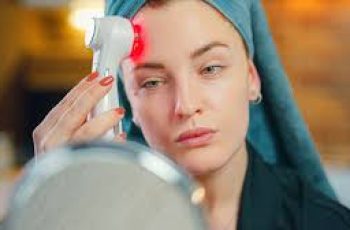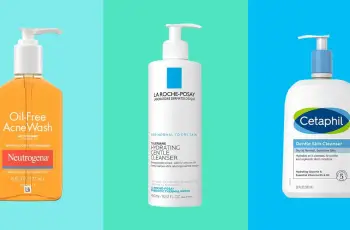
Ask The Dermatologist: What Really Is “Medical-Grade” Skincare and Why Is It Better?
When it comes to effective skincare, many people turn to dermatologists for prescriptions. Products with strong ingredients like azelaic acid and retinol often require a doctor’s note. But today, that’s changing.
“Medical-grade” skincare products with potent active ingredients are now available over the counter. This opens a new world of possibilities for people seeking professional-level results without a prescription.
Dr. Anthony Nuara, MD PhD FAAD, shares expert insights on what medical-grade skincare truly means and why it stands out from typical over-the-counter (OTC) options.
What Is Medical-Grade Skincare?
Medical-grade skincare contains higher concentrations of active ingredients designed to target specific skin conditions.
These products often rival prescription-strength formulas but can be accessed without a doctor’s prescription.
While OTC products usually have lower concentrations to suit all skin types and avoid FDA approval hurdles, medical-grade skincare operates under different rules.
These products do not require FDA approval but must meet strict purity standards and follow guidelines set by the United States Pharmacopeia (USP). This ensures safety, effectiveness, and quality.
Medical-grade products typically focus on issues like acne, rosacea, hyperpigmentation, and other skin concerns requiring targeted treatment.
The Power of Ingredients & Formulation
Medical-grade skincare stands apart mainly due to its ingredient potency. The active compounds in these products are at concentrations higher than those found in most OTC skincare.
This means the products work more effectively without the high irritation risk seen in prescription formulas. The balance is delicate but crucial for results.
Another key difference is ingredient purity. Medical-grade products use the purest form of actives, ensuring they penetrate deeply into the skin layers rather than just resting on the surface.
OTC products sometimes fail to penetrate the epidermis, limiting their effectiveness. Medical-grade skincare is designed with research-backed formulations to reach the dermis for lasting benefits.
Such products are often created by medical experts, including board-certified dermatologists, chemists, and pharmacists who specialize in skincare compounding.
Dermatologist-Recommended, Now More Accessible
Historically, medical-grade products with potent actives were only available through prescriptions. But times have changed. Many of these high-quality formulas are now available to consumers directly.
Foundation Skincare, for example, is a line developed by a team including a board-certified dermatologist, chemist, and pharmacist. Each ingredient is carefully sourced and scientifically validated.
The goal is to provide medical-grade efficacy without needing a prescription, while also ensuring products remain gentle enough for various skin types.
This approach means you get clinically effective skincare that’s safe, accessible, and supported by rigorous research.
Personalization vs. Product Range
When visiting a dermatologist, you typically receive a personalized skincare plan tailored to your skin’s unique needs.
OTC brands often leave consumers to self-diagnose and select products without expert guidance. This can lead to trial and error or ineffective routines.
While Foundation Skincare does not customize individual products per user, their collection is broad enough to address most skin concerns.
Whether your goal is to slow aging, manage acne, or brighten pigmentation, the collection provides a strong foundation with topical treatments and supplements.
Their formulas are designed to layer well, allowing users to build a tailored routine that suits their skin and goals.
If you’re unsure about what to use, Foundation Skincare offers customer support for personalized guidance.
Comparing Over-the-Counter and Medical-Grade Skincare
To highlight the difference between medical-grade and OTC, let’s examine Foundation Skincare’s Azelaic Acid 14% Cream versus The Ordinary’s Azelaic Acid 10% Suspension.
Both aim to reduce acne and fade dark spots. However, FS’s 14% concentration is closer to prescription strengths (typically 15-20%) and aligns with clinical study dosages.
This concentration delivers visible results with a lower risk of irritation than higher prescription strengths.
FS’s formulation also includes soothing agents like aloe leaf juice and jojoba seed oil, which calm inflammation and reduce redness.
Its gentle nature allows safe layering with other FS products, like the Niacinamide Lotion 10%, which balances oil production to control acne.
For hyperpigmentation, FS Vitamin C Lotion 20% complements azelaic acid by inhibiting tyrosinase, the enzyme responsible for brown spots and scars.
On the other hand, The Ordinary’s Azelaic Acid 10% Suspension cannot be combined safely with niacinamide or other actives like retinoids due to potential irritation.
Its heavy silicone base may also hinder deep skin penetration, reducing its overall effectiveness.
Safety and Quality Assurance in Medical-Grade Skincare
Safety is a non-negotiable factor in medical-grade products. Foundation Skincare’s formulas are developed by board-certified dermatologists and pharmacists.
Their products undergo rigorous testing to ensure both safety and efficacy before reaching consumers.
All manufacturing happens in GMP-certified facilities in San Diego, California, adhering to USP standards.
This means you get products with pure, stable ingredients sourced from trusted suppliers and formulated with consistent quality.
Long-standing, proven ingredients form the backbone of medical-grade skincare, ensuring you’re investing in reliable and research-backed treatments.
How to Choose the Right Medical-Grade Skincare
Getting access to medical-grade skincare today is easier than ever, but choosing the right product takes care.
Look for products developed or formulated by board-certified dermatologists and pharmacists.
Check ingredient concentrations to see if they match or closely resemble pharmaceutical-grade levels.
Verify whether the ingredients are pure and sourced carefully.
Ensure the product is manufactured in GMP-certified facilities that comply with USP standards for quality assurance.
Foundation Skincare offers several clinically validated products, including:
Azelaic Acid 14% Cream: Clinically shown to reduce acne and post-inflammatory hyperpigmentation.
Vitamin C Lotion 20%: Brightens skin and boosts collagen production.
Niacinamide Lotion 10%: Controls acne, fades discoloration, and improves skin texture.
Hyaluronic Acid Lotion: Deeply hydrates and restores skin elasticity.
Night Renewal Cream with 2% Granactive Retinoid: Reduces fine lines, wrinkles, and dark spots while speeding cell turnover.
Firming Neck Cream: Contains peptides that provide retinoid-like benefits with less irritation.
Why Medical-Grade Skincare is a Smart Alternative
Whether battling acne, premature aging, or stubborn pigmentation, medical-grade skincare products offer a powerful option.
They combine clinical strength, safety, and accessibility without needing prescriptions.
This opens doors for anyone seeking expert-level results at home with trusted formulations.
To learn more about the science behind these products, check out Foundation Skincare’s FS Journal for detailed research and updates.
In Summary
Medical-grade skincare stands apart through potent, pure ingredients developed by experts.
These products address specific skin concerns with research-backed formulations that deliver better results than typical OTC skincare.
With modern manufacturing standards and rigorous testing, medical-grade products are both safe and effective.
Thanks to brands like Foundation Skincare, consumers now have easier access to dermatologist-formulated products that bridge the gap between prescriptions and over-the-counter options.


